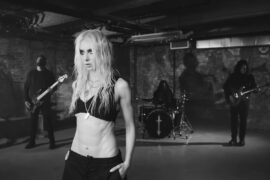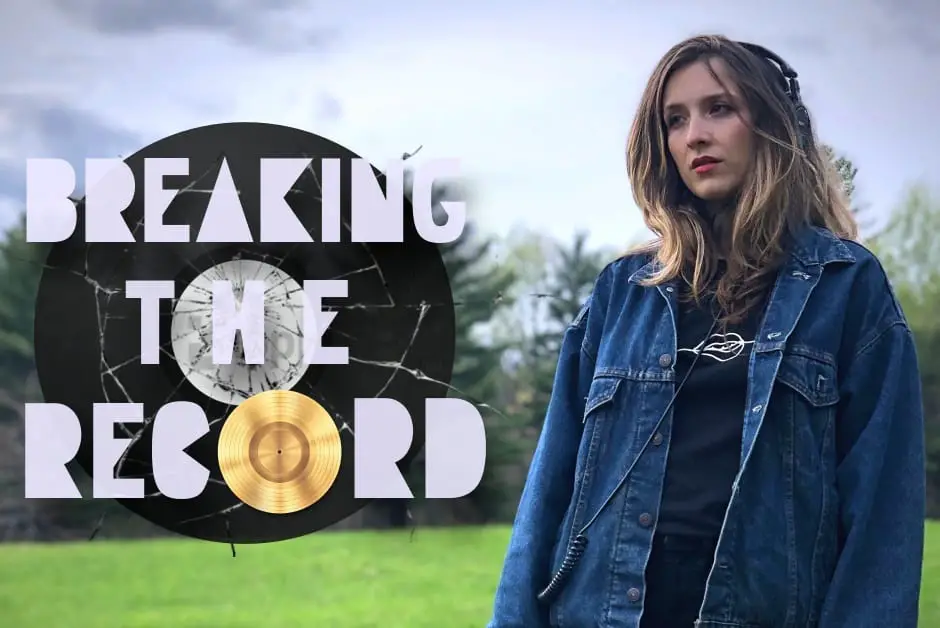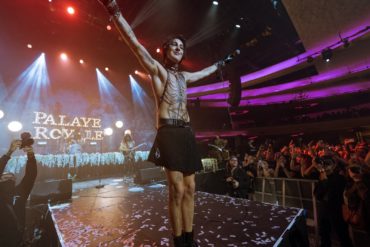Atwood Magazine connected with the titular Otis Pavlovic of Royel Otis to discuss the process behind making the Australian duo’s debut album ‘PRATTS AND PAIN,’ what to expect on their upcoming US headline tour, and what influences he draws on when creating.
Stream: ‘PRATTS & PAIN’ – Royel Otis
Australian guitar-pop duo Royel Maddell and Otis Pavlovic (Royel Otis if you will) are poised to become the next indie kings.
In many ways, it’s a modern Cinderella story…if Cinderella was two Australian guys who liked making music together. From their first release, 2021’s hypnotic Campus EP, Royel Otis has been steadily building momentum, and amassing an ever-growing crowd of loyal subjects, like a snowball rolling downhill to eventually become an avalanche.
With each successive release, like 2022’s dynamic Bar & Grill and 2023’s enchanting Sofa Kings, the duo have continued to grow bigger and bigger, ultimately leading them to where they are today: Having released their debut album, PRATTS AND PAIN (out February 16, 2024 via Ourness), at just the moment. Thanks to the help of triple j’s Like A Version, Royel Otis went viral for their cover of Sophie Ellis-Bextor’s “Murder on the Dance Floor,” giving them the perfect storm for a breakout debut.
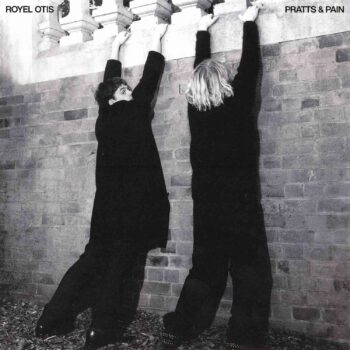
PRATTS AND PAIN marks a milestone, a point in time in which their sonic landscape is markedly changed. At the same time as the duo has been slowly drip-feeding their music into the world, they have also been slowly tinkering with their sound. Constantly reshaping it with each release to move away from the synths that were so prevalent in the beginning and welcoming more guitar in its place.
Yet, the influence of their previous work can still be seen in the DNA of the record. Songs bounce around, going from balladry to revelry and everywhere in between. But through it all, Otis Pavlovic’s vocals and Royel Maddell’s guitar stay consistently aligned, centered on the mutual trust that they built the band on.
Album opener “Adored” immediately sets the tone. Dripping in anxious energy, the track touches on the idea that our intentions may not always line up with reality. Royel Otis have always been great at creating juxtaposition within their music, with the content of the lyrics conflicting with the tone of the instrumentation. This juxtaposition is continued on “Foam,” where the otherwise mellow groove belies the vehement anger of the lyrical content. Not every song is an oxymoron: On “Heading for the Door,” the build up of the instrumentation mirrors the escalation of the argument. By stripping the song down to just the essentials, each element has a bigger impact; every instrument added to the song acts as a new voice, a new argument to further propel the uneasy feelings between the couple.
London was more than just a landscape for the album. In many ways, the city acts as another instrument added to the duo’s ever expanding arsenal. “Molly,” in particular, is a standout for its haunting gloominess. A hazy atmosphere is created from the slow droning of the strings combined with Pavlovic’s vocal delivery, giving the effect that we (the band and the listener) are all strung out.
“Daisy Chain” is a little sunspot poking through the “Molly”-induced haze, the upbeat melody and driving guitars are a stark contrast. In many ways the track is a marriage between their past and their present. It was produced by both Chris Collins and Dan Carey, connecting the summery vibes of Sydney with the murky overcast of London. On “Always Always,” the city adds an extra touch of melancholy to the track that makes the longing of the lyrics ever so sweeter.
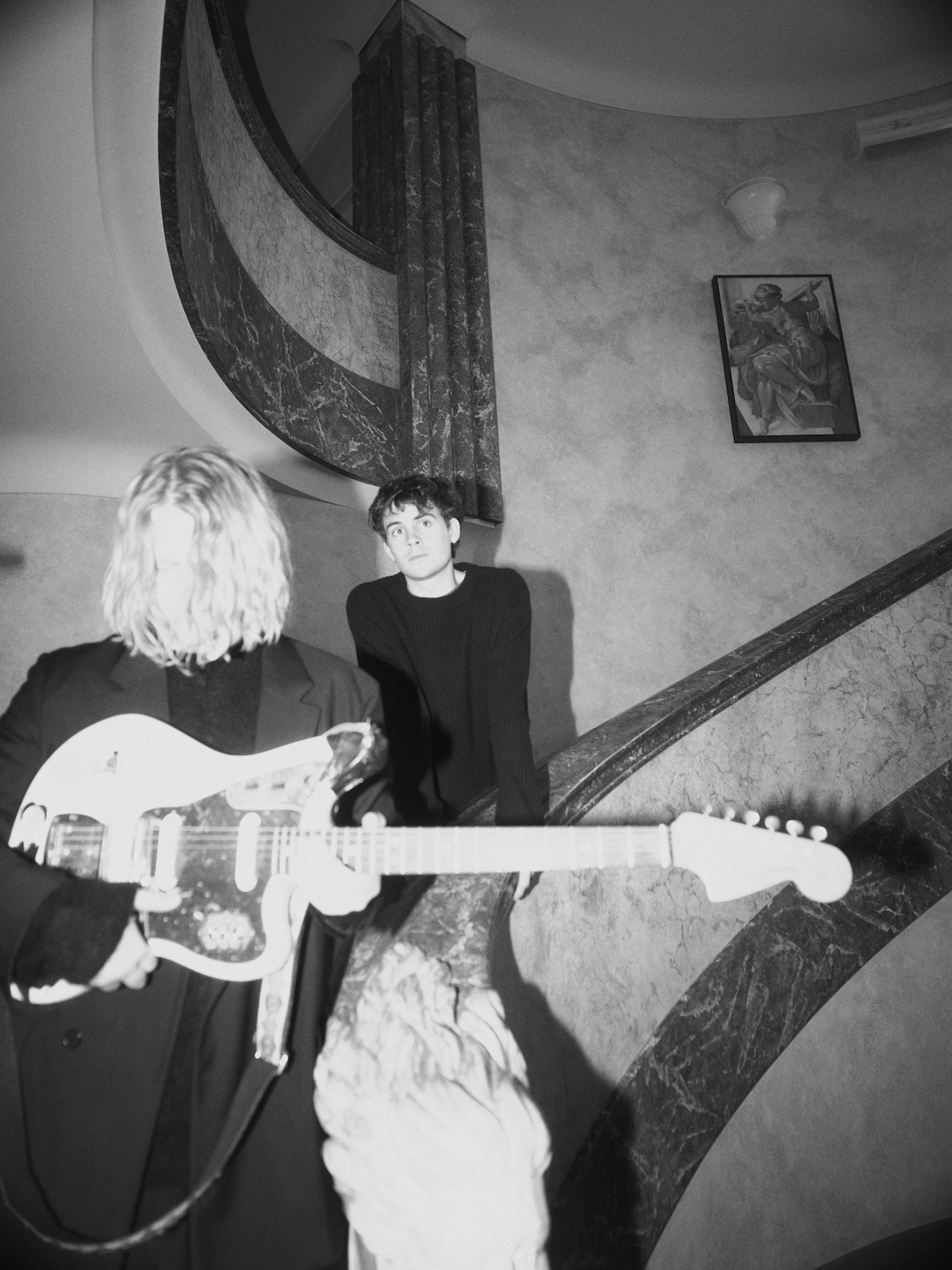
Royel Otis close out the album with a fiery bang on “Big Ciggie.” The loose playing of the instruments, and the bombastic drumming gives the song a much fuller sound, almost like that of a marching band. The juxtaposition between the celebratory mood of the music and the gruesome details of the lyrics creates a dichotomy that reflects our emotions at a funeral; wanting to touch on the good and bad aspects of life. PRATTS AND PAIN is Royel Otis fully realized. Through the record, the duo are able to fully explore themselves and their relationship. It’s an album about trust and friendship. While the songs may not always be upbeat, it is easy to hear Royel and Otis had an absolute blast while making it.
Atwood Magazine connected with Otis Pavlovic of Royel Otis to discuss PRATTS AND PAIN, diving into the process of making the album, how their tour has been going (and what they’re excited to see during their first US headline tour), and what has influenced them historically and while making the album. Ultimately, Pavlovic reflects on the record to predict how he thinks Royel Otis’ sound will continue to evolve in the future.
Royel Otis’ headline North American tour starts on April 20th and will see them performing 24 show and festival dates, culminating on a slot at Boston Calling in late May! Find tickets and more information at royelotis.com!
— —
:: stream/purchase PRATTS & PAIN here ::
:: connect with Royel Otis here ::
A CONVERSATION WITH ROYEL OTIS
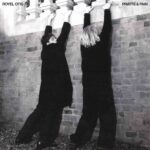
Atwood Magazine: How have you found the initial reception to be for the album? Has it been good?
Otis Pavlovic: Yeah, it’s been crazy, especially all the shows and stuff. I guess when you put it out, unless you see it firsthand, you don’t really think like, you can’t really tell if people are actually liking it. But after every show we’ve been doing signings of the records and a lot of people have been buying it and been excited about it. So yeah, I think it’s been received well. At least to our faces.
Yeah, that’s good. That’s good it’s to your face.
Otis Pavlovic: Yeah (laughs), that’s all that matters.
So you guys are feeling good post-release?
Otis Pavlovic: Yeah, it’s been crazy. The day we released the album we had a show that night, and we’ve just been touring since then. So it’s been a lot of shows, and it’s been a lot of rest stuff on the side as well. But other than feeling a little bit tired or something, feeling good about it.
So the Australian crowd of your tour has been really feeling it?
Otis Pavlovic: Yeah, they’ve been all going great. Every show has been sick. Even people singing the lyrics to the new ones, which is crazy because they don’t have as much time to learn.
Yeah, I’ve been listening to it a lot in the past week – I was listening to it today and I was singing along as well. It’s really catchy.
Otis Pavlovic: Yeah, that’s good. I guess the choruses, some of them are pretty easy to remember.
And it’s kind of mumbly a bit, so even if you don’t think you know it, you can just fill it in.
Otis Pavlovic: Exactly, write your own lyrics to it!
Yeah, like an ad libs, Mad Libs, whatever those are called. Fill in the blank (laughs).
Otis Pavlovic: Oh yeah, (laughs) that’s actually a good idea: To write a song that people get to fill in the blank.
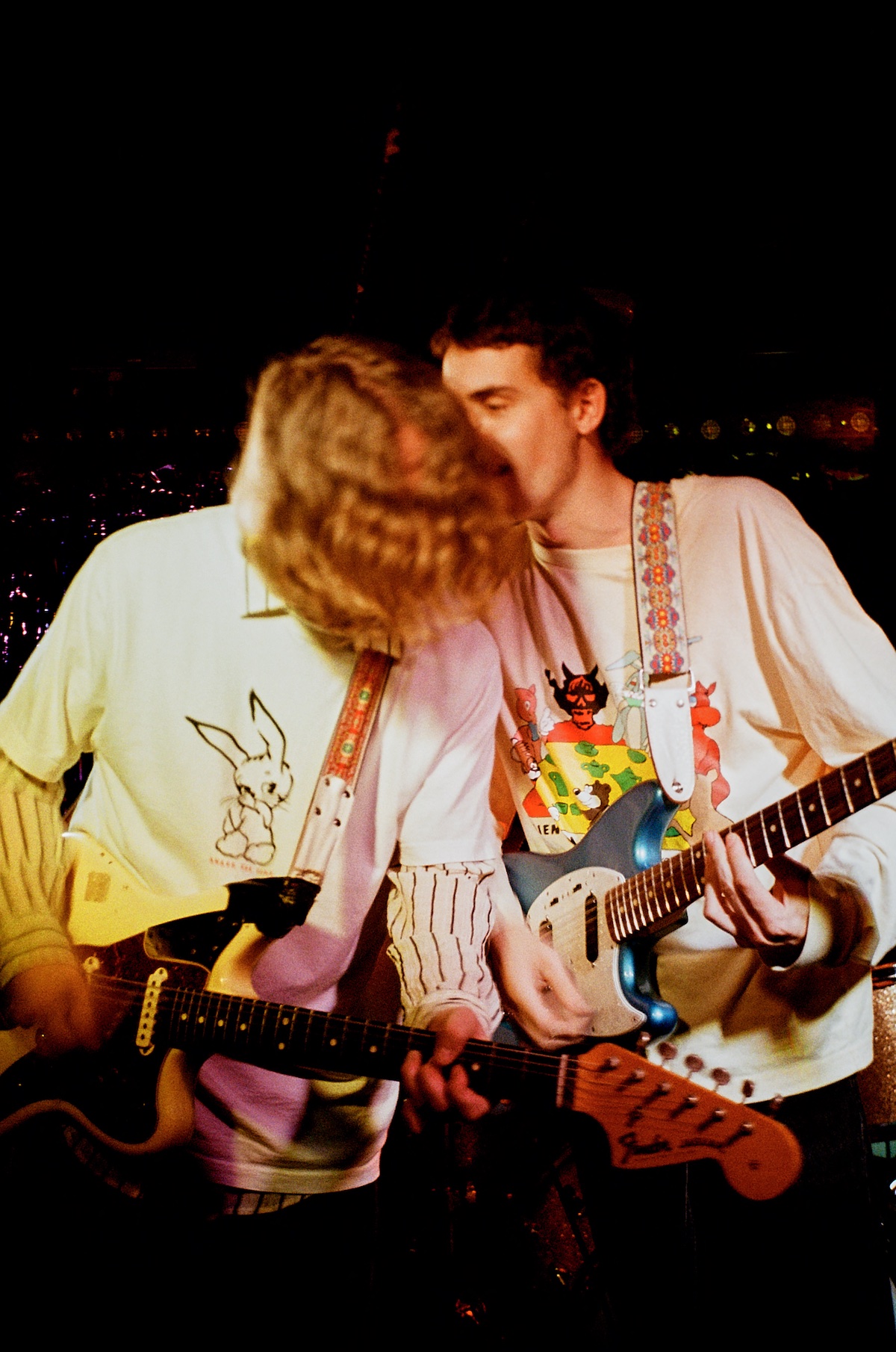
Yeah, just kind of like hum it. It’s like a mondegreen or whatever. Where they think they know what it is, but it’s really nothing.
Otis Pavlovic: It’s totally completely different. You have to look at the mouth. Have you seen those things where like – it comes up on my Instagram feed sometimes – like it’s a word but if you look at the mouth, it can say different things. Whatever that word you’re thinking about, it will say that word you’re thinking about or whatever.
Yeah, this is me geeking out, I studied this in school. There’s a term for it but I’ve forgotten it by now.
Otis Pavlovic: Oh yeah?
I really can’t remember, I think it starts with an M or something.
Otis Pavlovic: Oh yeah, that’s cool.
writer’s note: My explanation during the interview was not correct, but here is the right one: It’s called the McGurk Effect. Basically if someone hears the phoneme /ba/ but reads the lips as saying /ga/, then they will hear a third phoneme, /da/.
Back to my questions: So back to touring, it’s been going well. Are you guys excited to play in the US for the first time?
Otis Pavlovic: Yeah, really keen. It’s our first time touring so it will be good. I’ve heard there’s a lot of driving when it comes to touring the US, so I feel like we’ll be in the bus or the car quite a bit, but I’m looking forward to it. I feel like there’s definitely some venues that I’m keen to play, like The Fonda in LA, and I’ve heard Meow Wolf in Denver is meant to be cool. But yeah, looking forward to it.
You should check out Red Rocks, that one’s a classic venue as well.
Otis Pavlovic: Where is that?
It’s right outside of Denver, but it’s an outdoor venue. So it’s “Red Rocks” because it's built into red rocks. It’s a really scenic one. I think it’s kind of smaller but big bands play there.
Otis Pavlovic: Oh sick.
But yeah, for a lot of bands it’s like a bucket list venue. I don’t know how much time you guys have there, but Red Rocks is really cool. It’s on my bucket list to see a concert there.
Otis Pavlovic: Oh really? Well maybe it’ll work out and maybe we can stop by and see someone.
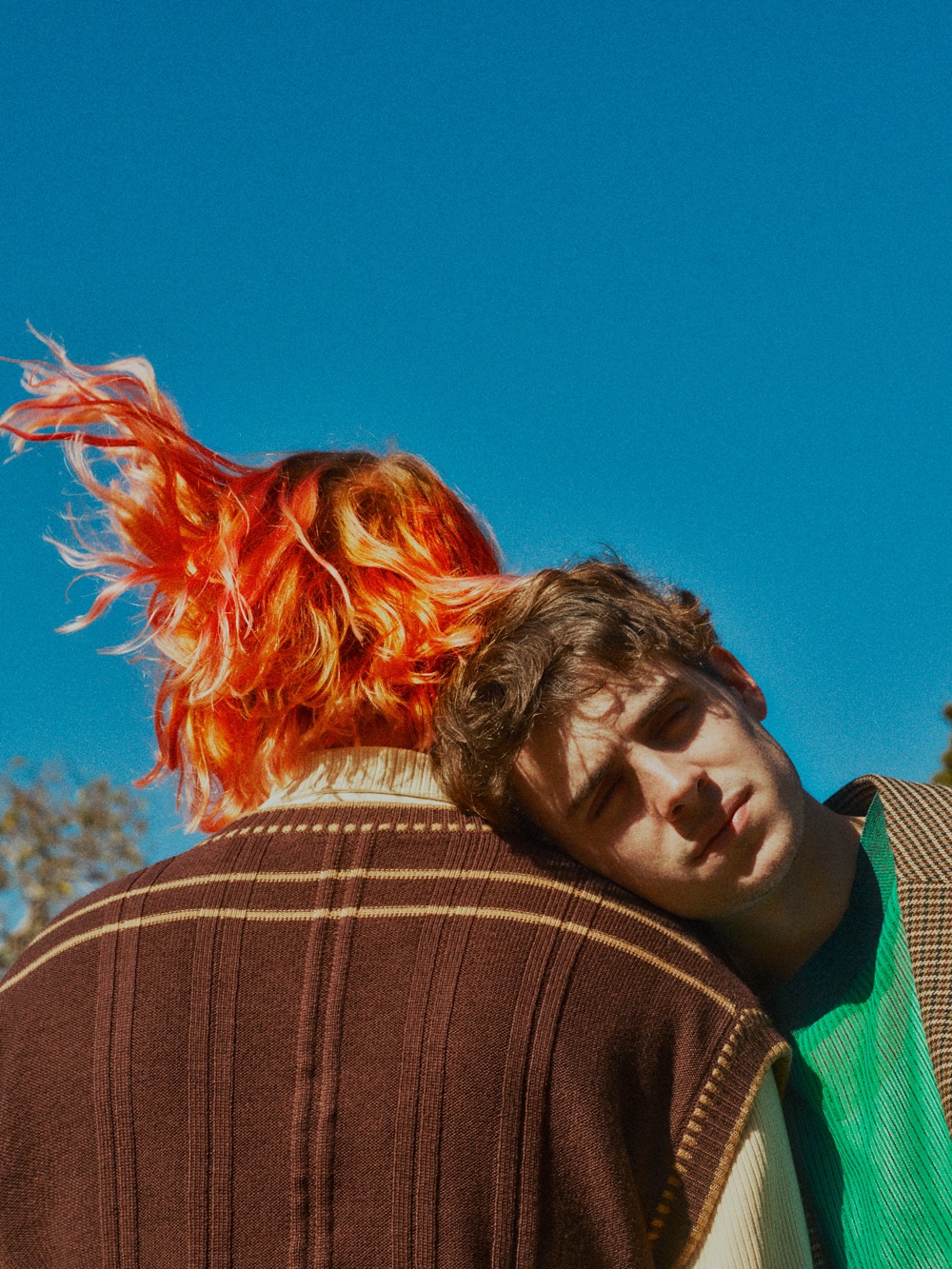
How surreal is it for you guys that so many dates for these shows are sold out for your first headline in the US?
Otis Pavlovic: It’s so weird. Yeah it’s so weird to think that we’ll go over and possibly the rooms could be filled out. And I feel like we’re doing similar size venues to what we are doing in Australia, so it’s weird that they’re kind of like at the same level because we haven’t, we obviously haven’t toured there. We did a show at KROQ in LA that was in front of like 250 people and it was more of like a corporate kind of gig, but that’s kind of the only thing we’ve done. And then we’ve done a couple of radio things over there, for like New York and stuff. But yeah, first proper show, so it’s weird. It’s weird to think that people are gonna come and sell the venues out.
Now this is more in line of making your album. You mentioned, I think to NME, that you guys had kind of gone “speed dating” with other producers before deciding to go with Dan Carey. Can you kind of talk about what that process was like? Was there a specific quality you were looking for in a producer?
Otis Pavlovic: I guess just to get on with them, and feel like we had a bit in common. Because we went over there, I’m gonna say late 2022, but it was before our tour. We went over there and met a bunch of different producers. And it was good but I remember just being like “F**k, like it is so weird.” It’s hard to actually get a connection with someone if you’re just in the studio with them for like one day, and not actually having enough time to meet them and properly get to know them and feel comfortable. So it did feel like speed dating. But then, I think when we met Dan, he was just chill. And then we did a song with him. We did two days with him, and the song turned out cool and we were like ‘yeah he could be the right dude to work with.’ He also just liked hanging out and having beers, and just liked doing other things than getting in the studio and trying to put a song out.
So it’s kind of like going on actual dates, like you see what qualities you have in common. But it’s musical qualities as well.
Otis Pavlovic: Yeah exactly. I feel like, because we met so many different producers, and like all of them were great and had their own thing going on, but I feel like Dan was the man for just this album. We also did one song with James Ford, who’s a producer in the UK, on one of those sessions, and that actually ended up being on the album.
“Molly” right?
Otis Pavlovic: Yeah, “Molly.”
Yeah, so I guess that one kind of worked out.
Otis Pavlovic: Yeah, yeah, it did. He was nice.
Did you just mesh more with Dan than with James?
Otis Pavlovic: They’re both good in their own way. They both brought their own thing. I felt like James seemed like a bit more of a veteran, he was quite calm and cool and collected the whole time. It wasn’t like he was getting super excited about things. And Dan was a bit more like “let’s do it.” So yeah, Dan, I feel like, had a bit more energy and maybe excitement towards it. But they’re both great. And I feel like so many of the records that James has done which are sick. He recorded this recent band called The Last Dinner Party and I think that record sounds pretty cool.
Yeah, I feel like Dan has done a lot of up-and-coming artists as well.
Otis Pavlovic: Yeah he has, Fontaines D.C.
Wet Leg has been really, really big.
Otis Pavlovic: Yeah Wet Leg. Are they quite big in the States?
Yeah. Was it hard to shift over to working with Dan, like his production style and rehearsing?
Otis Pavlovic: It was different, because Chris is such a nice guy, and we felt so comfortable with him, and we’d been recording with him for quite a while. When we have an idea with Chris, you don’t second guess it at all, you don’t think “oh like even if it doesn’t work out” or whatever, you just put it out there. But I feel like with Dan, at least at the start, we were a bit more conscious of what we were coming up with and what we were going to do. Like at the start we didn’t feel as free, and because Dan has obviously worked with so many amazing bands, it was a bit more intimidating with Dan. But I feel like towards the end we got there. But Chris, yeah, he creates a really good atmosphere for just creating music. He’s just easy to work with, and love the guy.
So what was the biggest thing you guys learned from your studio sessions with Dan then?
Otis Pavlovic: I feel like just to back yourself and back the ideas. And like no matter who you work with – because at the end of the day it doesn’t really f*ing matter and everyone is just trying to have fun and create something you’re happy and proud of – so just like throwing whatever ideas you have out there and not holding back. I learned that as we went on with Dan, because I think at the start, we were a little bit more timid. I learned that as we went on.
Do you think, maybe this is just me projecting, I personally think PRATTS AND PAIN is a bit, like the atmosphere of it, is a bit darker than your prior stuff. Do you think that darker atmosphere is a reflection of where it was recorded or was that an intentional choice you guys made before going in the studio?
Otis Pavlovic: A bit of both. I think definitely, it sounds like Dan living in South London, and it’s just going to feel dark in it no matter what. Like I would say he’s probably more like, maybe a bit of a darker dude than Chris. I guess because a lot of the lyrics and stuff that we wrote for the album were already a little bit darker, and like talking about topics that we hadn’t really talked about before. I feel like some of the other songs that we had done previously at Chris’ were more upbeat and more on the happy and brighter side. And then I feel like we were just writing more kind of raw and honest lyrics on this one. So yeah I think in both ways it has probably come across a bit darker, but that’s also probably a bit of Dan’s production.
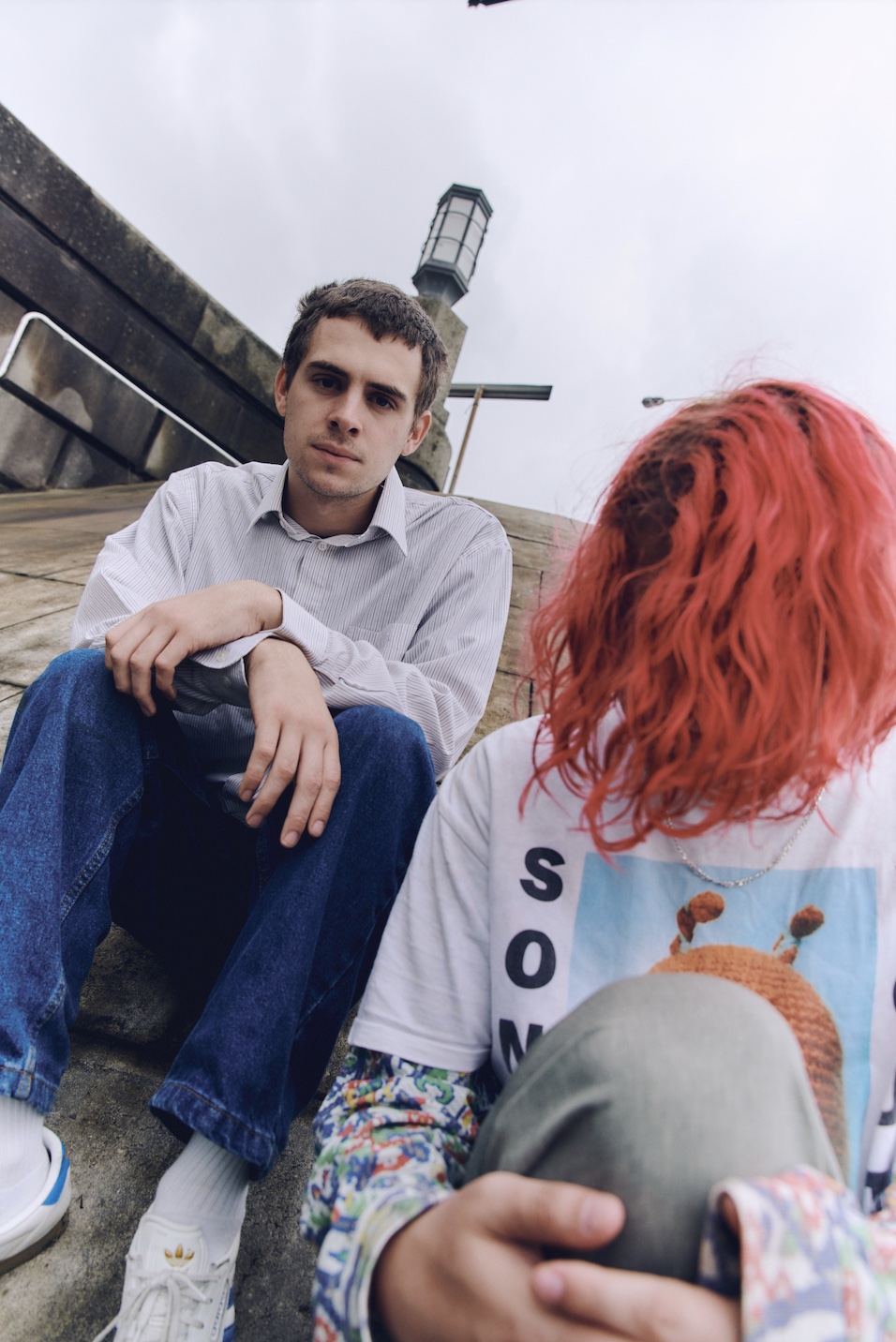
Yeah, you guys had once called your music “happy/sad” and oxymoronic in a way. I feel like with this one, it’s more straightforward. There still is an oxymoronic nature to it, but it’s like less so.
Otis Pavlovic: Yeah, it’s funny because sometimes the lyrics are a bit grim and weird and strange or whatever, but we normally juxtapose it with a happy, upbeat melody or a catchy chorus. So yeah, you’re right.
You guys have a lot of musical influences on the record, from The Velvet Underground, at least “Molly” reminds me a lot of “Venus in Furs,” to the line “come on Eileen” in “Fried Rice.” Do you want to talk about where you think these influences shone on the album?
Otis Pavlovic: I feel like there’s always gonna be influences, and it’s kinda like we talk about a lot of bands but we didn’t really necessarily go like “let’s make a song like Velvet Underground, or let’s make a song like…” That I feel like is just where the song kind of went and then probably when people hear it they go “it sounds like Velvet Underground” maybe. But I think that’s just like the string part in “Molly” and yeah “Venus in Furs.”
Yeah, it’s like the beat to it. I don’t know if there’s like a tambourine to it. It took me a bit to catch it.
Otis Pavlovic: Yeah there is a similarity in that.
Were there any other influences that came out when you guys were recording?
Otis Pavlovic: I don’t know. There’s such a mix of different bands that we were listening to and stuff. Yeah, I don’t know, we’re always influenced by The Cure and stuff like that. Yeah I would say The Cure and there’s a bit of like, I was listening to a bit of New Order at the time. I can’t remember what Roy was listening to, but yeah, a mix of things.
How would you describe the color palette of this album?
Otis Pavlovic: Ooh… How many colours?
However many you want.
Otis Pavlovic: I would say actually the colour palette that we’re using in our merch and like purses and stuff, and like the cover. Black and blue, black and blue. Well black’s not really classified as a colour, but we’ll count it, black and blue.
Would you say the blue is like a “Sonic Blue”? (laughs) I had to do that, sorry.
Otis Pavlovic: Yeah, we’ll go with that (laughs) Pun intended.
What was the motivation behind adding “Sofa King” to the album?
Otis Pavlovic: Just to have a bit of familiarity within the songs. Just decided to chuck it in where it could fit in well with the mix.
Yeah, it was good behind “Daisy Chain”…
Otis Pavlovic: They’re both actually, well “Daisy Chain,” we recorded that with Chris and then Dan mixed it. And we recorded “Sofa King” with Chris, so yeah they kinda sit well together.
Yeah they’re both more summery. It’s like a bit of a reprieve from all the London.
Otis Pavlovic: Yeah, a relief (laughs).
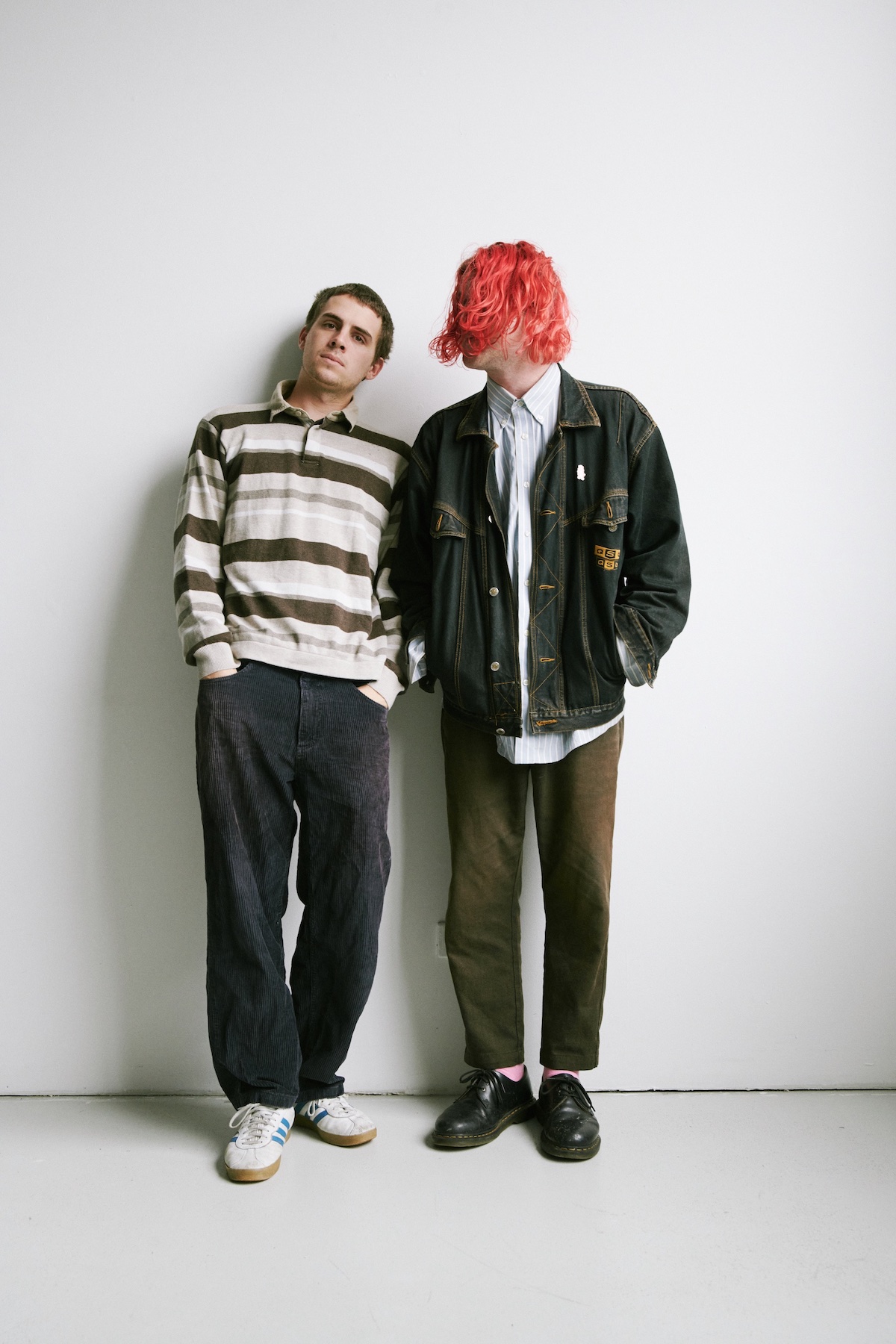
It’s the little blue in all the black (laughs). How would you say other art has influenced you as an artist? Like I don’t know, films, games, whatever?
Otis Pavlovic: Like games, I guess. I played a lot of skating games when I was younger like Tony Hawk Pro Skater World, or like Skate 3. And that they always had great soundtracks. The Skate 3 soundtrack is so, so good. And then also like FIFA. Like I remember playing FIFA when I was younger and just loving so many great songs I would get on there. So I feel like all of those. I remember when Roy and I first started, we were like, “Imagine getting a song on FIFA, like FIFA always has such good soundtracks.” And then “Going Kokomo” ended up getting FIFA, which was crazy. But gaming, I feel like in that sense, definitely influenced me, and I think Roy as well. And sometimes movies, and I know Roy is quite like a movie geek or nerd, like he loves especially like japanese anime films and all that kind of thing, I’d say for him. But mostly for my influence is probably just more like music and bands and stuff I listen to.
Well kind of speaking on that, you guys recently covered “Murder on the Dance Floor” for triple j’s Like a Version, which has gone viral. Congrats! What was your motivation behind choosing that? You had mentioned it wasn’t originally your first choice, so what propelled you guys to be like “yeah this one”?
Otis Pavlovic: Well it was just really like a weird coincidence. Maddy Smith, who works for Ourness, she manages us and stuff, for like 2 months before we did it, she was like “what about ‘Murder on the Dance Floor’?” and I think we were like “oh yeah that could be cool,” but we didn’t try it out or anything and kind of blew it over our heads. And then we literally were kind of putting it off – well we just didn’t know what to do – so we were like until the day before, we were like trying to come up and think of songs. The day before, we got into the rehearsal room and we started with “Build Me Up Buttercup” by The Foundations, and we were like “it’s cool.”
Then we tried one of The Hives’ songs, and then I think someone was like, “Well why don’t you try it, ‘Murder on the Dance Floor,’” because we had all just seen Saltburn, so we were like, “Oh yeah, we’ll try that.” This was like 3:00 the day before, and we tried it and were like “alright, that’ll do. I feel like that’s the one where we’ll come the closest to getting and at least finishing it.” And everyone at least knew it because it’s kind of an iconic song. So we did it, and the next day we gave it a crack. Yeah, it was pretty strange how it got received because it all felt, I guess in our inner circle it felt very last minute and kind of like not really sure it was going to happen. But yeah that’s how.
Let’s do one last question. Would you say there is one specific song from the record that best represents where you guys are now as artists?
Otis Pavlovic: I’d say “Heading for the Door.” I think because that song is pretty stripped back, like there’s not a whole lot going on. There’s just like little parts but meaningful parts, like the guitar part’s meaningful. There’s just nothing added in there that shouldn’t be in there. It’s trimmed down to just what needs to be in there, and I feel like that’s where we’ll kind of, we should be kind of going at least. Just like getting comfortable picking a certain amount of instruments and sounds, and just sticking within that box. You don’t need a whole lot more to like put a song down.
— —
:: stream/purchase PRATTS & PAIN here ::
:: connect with Royel Otis here ::
— — — —

Connect to Royel Otis on
Facebook, Twitter, TikTok, Instagram
Discover new music on Atwood Magazine
© Alex Wall
:: Stream Royel Otis ::
Royel Otis Tour
North America, 2024
• • •
April 20 – The Pavilion at Toyota Music Factory, Irving TX
April 21 – The Resonant Head, Oklahoma City, OK*
April 23 – Amsterdam Bar & Hall, Saint Paul, MN*
April 24 – Lincoln Hall, Chicago, IL*
April 26 – Lee’s Palace, Toronto, ON* +
April 27 – A&R Music Bar, Columbus, OH*
April 28 – Grog Shop, Cleveland Heights, OH*
April 30 – Racket, New York, NY*
May 1 – Racket, New York, NY*
May 2 -Theatre of Living Arts, Philadelphia, PA*
May 3 Howard Theatre-, Washington, DC*
May 4 -Lincoln Theatre – Raleigh, NC*
May 5 – Shaky Knees Festival, Atlanta, GA
May 8 – Parish, Austin, TX LOW TICKETS
May 9 – Rubber Gloves, Denton, TX*
May 11 – Meow Wolf, Denver, CO*
May 15 – The Rebel Lounge, Phoenix, AZ*
May 16 – The Fonda, Los Angeles, CA
May 18 – Rickshaw Stop, San Francisco, CA*
May 20 Aladdin Theater-, Portland, OR*
May 21 – The Pearl, Vancouver, BC*
May 22 -The Neptune Theatre, Seattle, WA*
May 24 – BottleRock, Napa, CA
May 26 – Boston Calling, Boston MA
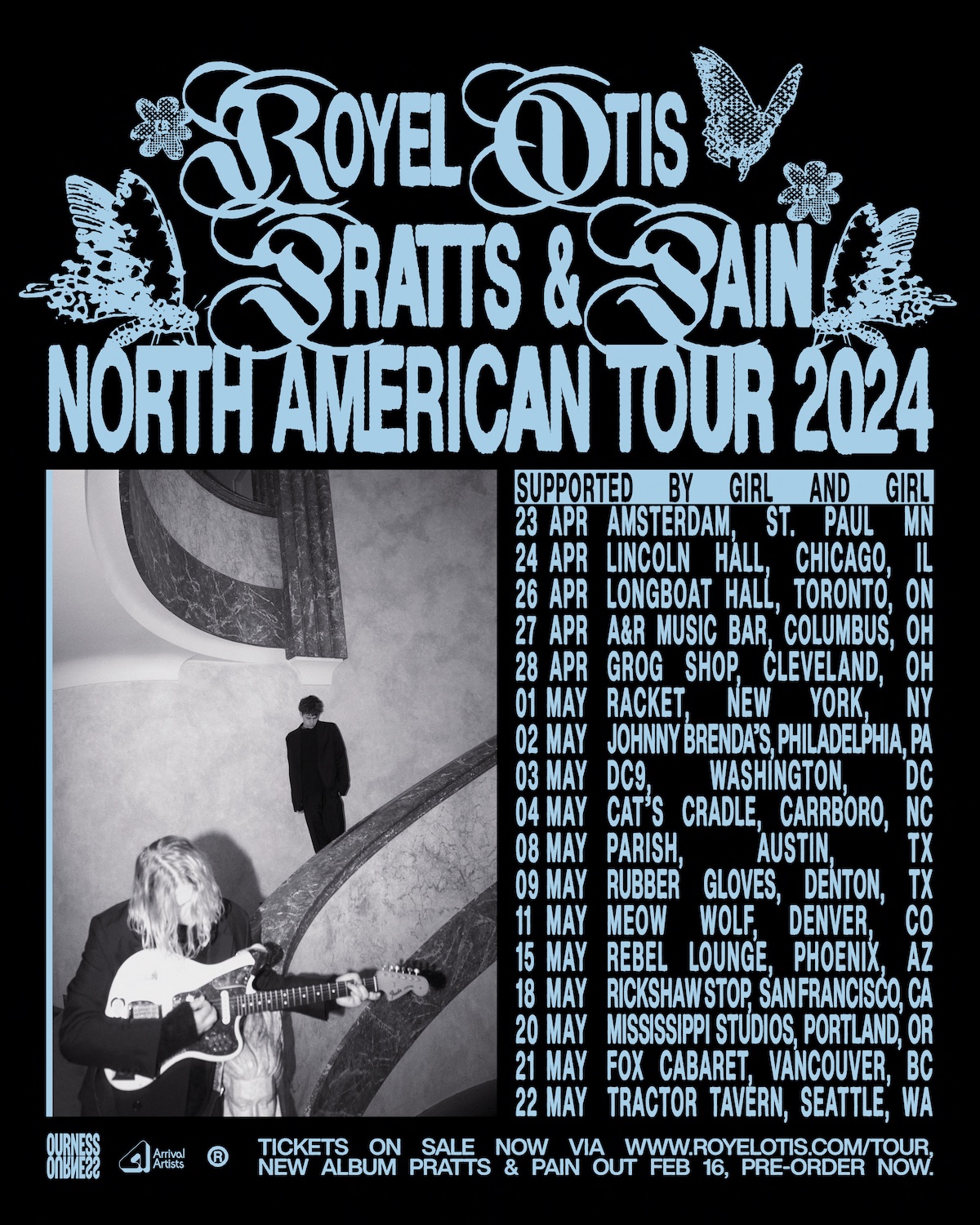

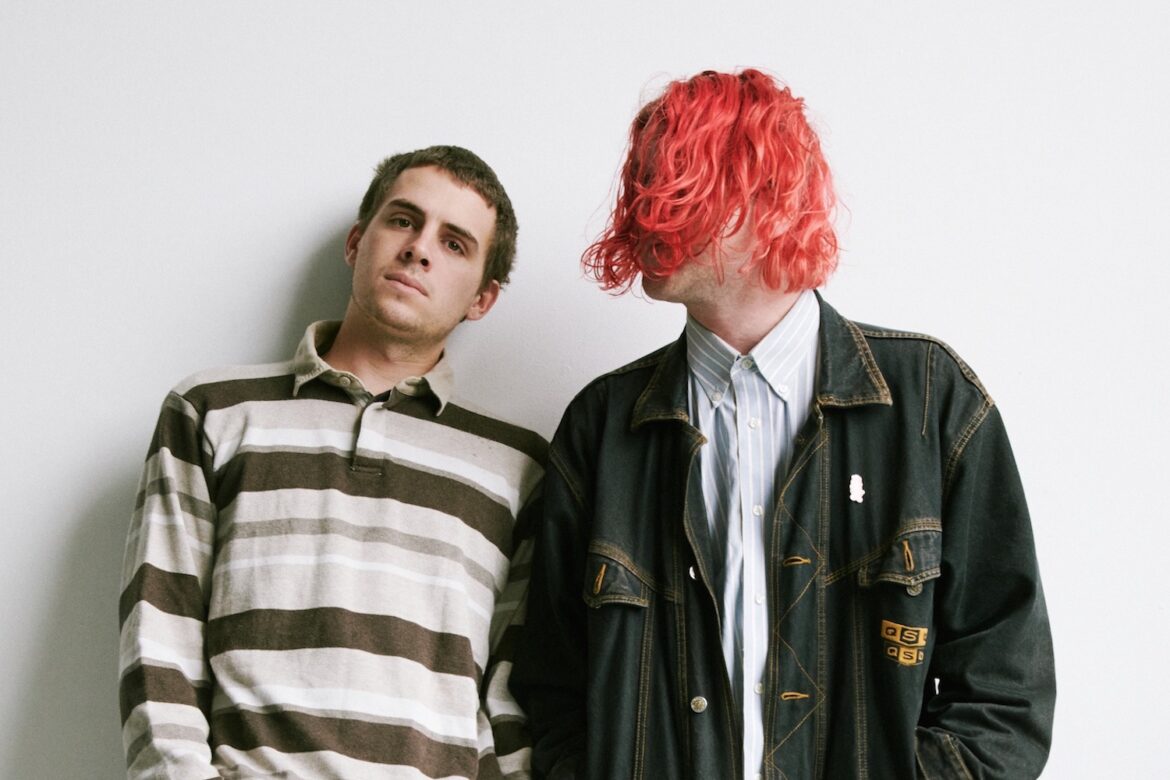
 © Alex Wall
© Alex Wall
